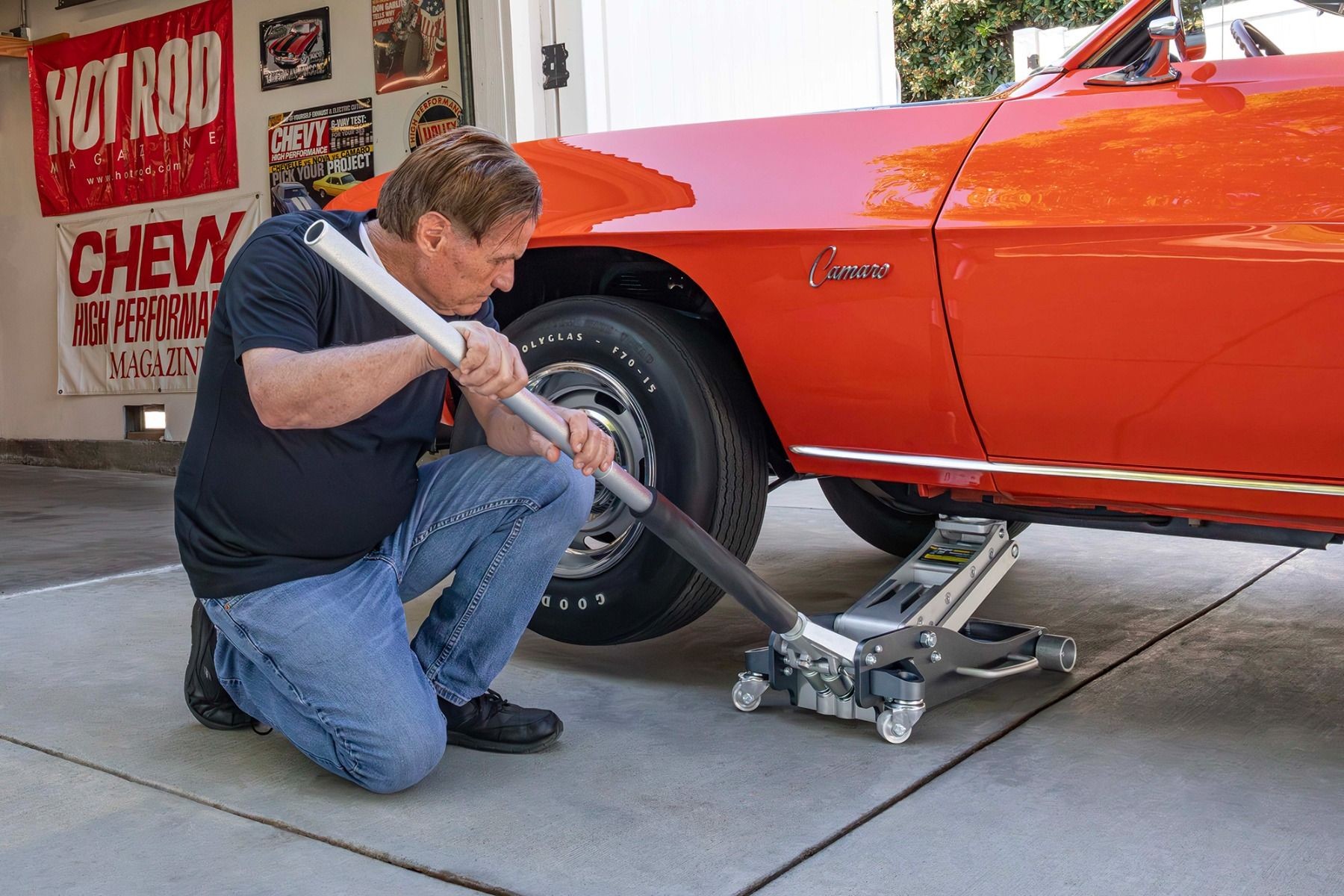Hydraulic floor jacks are indispensable tools in any garage. For lifting vehicles, they are more frequently used than any other method, proving their reliability and effectiveness over time. However, the market offers a vast array of floor jacks, and not all deliver equal performance or safety. At Ranger, we prioritize your safety, offering ANSI certified hydraulic floor jacks. Regardless of the task, even simple tire changes, using jack stands is crucial. Opting for Ranger jacks and stands, and adhering to your vehicle manufacturer’s guidelines, ensures the safest possible lifting operation.
Once you’ve decided on a reputable brand, like Ranger, the next step is selecting the right model for your needs. Ranger provides a diverse selection of floor jacks designed to suit various vehicles and tasks. This guide will assist you in discovering the Good Floor Jack that perfectly fits your home garage requirements.
Understanding Floor Jack Capacity for Safety
The lift capacity of a floor jack is a critical factor to consider. For a vehicle weighing 3,000 lbs, a 1.5-ton jack is the minimum recommendation. Ideally, your jack should be rated at or near the curb weight of the vehicle you intend to lift. This practice provides a 4:1 safety factor when lifting from designated points along the pinch weld or vehicle frame. Ranger floor jacks often exceed this, engineered with even greater safety margins. Similarly, for heavier vehicles around 7,000 lbs, a 3-ton jack is advisable. Even though it might not match the vehicle’s full weight, Ranger’s robust construction ensures a safety factor well over 2:1. Choosing a jack with appropriate capacity is a cornerstone of selecting a good floor jack.
Hydraulic vs. Mechanical Floor Jacks: Choosing the Right Type
The choice between hydraulic and mechanical jacks is straightforward, especially for garage use. Mechanical jacks, particularly scissor jacks, are best reserved for emergency situations. Their limited surface area makes them less stable and more prone to slippage if not perfectly positioned. They offer less user-friendliness and the scissor crank mechanism can be both cumbersome and potentially hazardous. Their primary advantage is their lightweight nature, making them suitable for emergency roadside kits. However, for garage applications, a hydraulic floor jack is significantly safer and more convenient. A good hydraulic floor jack features an internal cylinder designed to prevent drifting unless there is a rare seal leak. Always remember to use jack stands in conjunction with any floor jack, providing a crucial backup in case of jack failure before wheel removal, safeguarding your vehicle’s components.
Considering Bottle Jacks: Bottle jacks, also known as piston jacks, are compact and light. However, they lack the stability of trolley jacks. While sometimes used on four-post lifts in place of rolling bridge jacks, their limited lift height and stability make them unsuitable for general car lifting. For home garages, trolley jacks offer a safer, more portable, and affordable solution compared to bottle jacks, making them a better choice for a good floor jack.
Steel vs. Aluminum Floor Jacks: Material Matters?
When deciding between steel and aluminum floor jacks, it’s important to dispel common misconceptions. Contrary to some beliefs, steel doesn’t automatically equate to a “stronger” jack, especially with modern manufacturing techniques. Ranger’s professional-grade aluminum racing floor jack, for example, is constructed from aircraft-grade billet aluminum, ensuring reliability comparable to any other jack we produce. Aluminum jacks are lighter and easier to maneuver, making them popular in racing environments and professional workshops. While a good aluminum jack might have a slightly higher price, the difference is often minimal. Ultimately, both steel and aluminum jacks can be safe and reliable. If weight and maneuverability are priorities, aluminum is an excellent option for a good floor jack.
Standard or Low-Profile Floor Jack: Matching Jack to Your Vehicle
For owners of low-stance sports cars or vehicles with lowered suspensions, a low-profile hydraulic jack is highly recommended. These jacks feature extended, low-profile trolley designs capable of reaching the jacking points on most low-riding vehicles. The longer frame also enhances leverage, making jacking easier. Conversely, standard floor jacks might be more suitable for lifting trucks and high-stance vehicles. The taller profile of standard jacks means they need to lift less distance before contacting the vehicle chassis, potentially providing greater overall lifting height for these types of vehicles. Selecting between standard and low-profile depends on your vehicle type, ensuring you choose a good floor jack that fits your specific needs.
Quick-Pump Feature: Is it Worth it for a Good Floor Jack?
If you work in a fast-paced environment, like a race track, or time is a crucial factor, a quick-pump hydraulic jack is a valuable consideration. Quick-pump jacks are engineered to reach the vehicle chassis and maximum lifting height with fewer pumps, saving time and often incorporating ergonomic designs for easier operation. While these models might come with a slightly higher price, the time-saving benefits can be well worth the investment for professional mechanics and anyone who values efficiency. For those seeking a good floor jack that prioritizes speed and ease of use, the quick-pump feature is a significant advantage.

